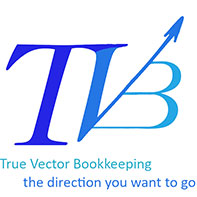Yes, outsourced bookkeepers can also assist small businesses in preventing and detecting various other types of fraud beyond embezzlement. Here are some ways they can help:
- Vendor Fraud: Outsourced bookkeepers can review vendor invoices, payment records, and contracts to detect potential signs of vendor fraud, such as overbilling, fictitious vendors, or kickbacks. They can also implement vendor management controls to verify the legitimacy of vendors and ensure compliance with contractual agreements.
- Billing Fraud: Professional bookkeepers can scrutinize billing records, purchase orders, and expense reports to identify discrepancies or irregularities indicative of billing fraud. They can establish approval workflows and invoice verification procedures to prevent unauthorized or fraudulent payments.
- Payroll Fraud: Outsourced bookkeepers can oversee payroll processing activities, including timekeeping, wage calculations, and payroll tax withholdings, to prevent payroll fraud schemes. They can implement controls to verify employee data, monitor changes to payroll records, and reconcile payroll transactions with bank statements.
- Financial Statement Fraud: Professional bookkeepers play a role in maintaining accurate financial records and preparing financial statements that reflect the true financial position of the business. They can help detect and prevent financial statement fraud by ensuring compliance with accounting standards, conducting periodic reviews of financial data, and performing analytical procedures to identify anomalies.
- Expense Reimbursement Fraud: Outsourced bookkeepers can review employee expense reports, receipts, and reimbursement requests to prevent fraudulent expense claims. They can implement expense reimbursement policies, require supporting documentation for expenses, and conduct regular audits of expense reports to detect potential fraud.
- Cash Theft and Misappropriation: Professional bookkeepers can establish controls to safeguard cash assets and prevent theft or misappropriation. This may include implementing cash handling procedures, conducting regular cash counts, and reconciling cash transactions with accounting records.
Cyber Fraud: Outsourced bookkeepers can collaborate with IT professionals to implement cybersecurity measures aimed at preventing cyber fraud, such as phishing attacks, malware infections, or unauthorized access to financial systems. They can also monitor for
- suspicious activities and unauthorized transactions within digital platforms.
- Insurance Fraud: Professional bookkeepers can assist in detecting and preventing insurance fraud by maintaining accurate records of insurance policies, claims, and premiums. They can verify the validity of insurance claims, identify potential red flags, and cooperate with insurance providers and investigators during fraud investigations.
By actively monitoring financial transactions, implementing internal controls, conducting regular audits, and staying informed about emerging fraud risks, outsourced bookkeepers can help small businesses mitigate the risk of various types of fraud and protect their assets and reputation. Their expertise and diligence contribute to creating a secure financial environment that fosters trust and integrity within the organization.

